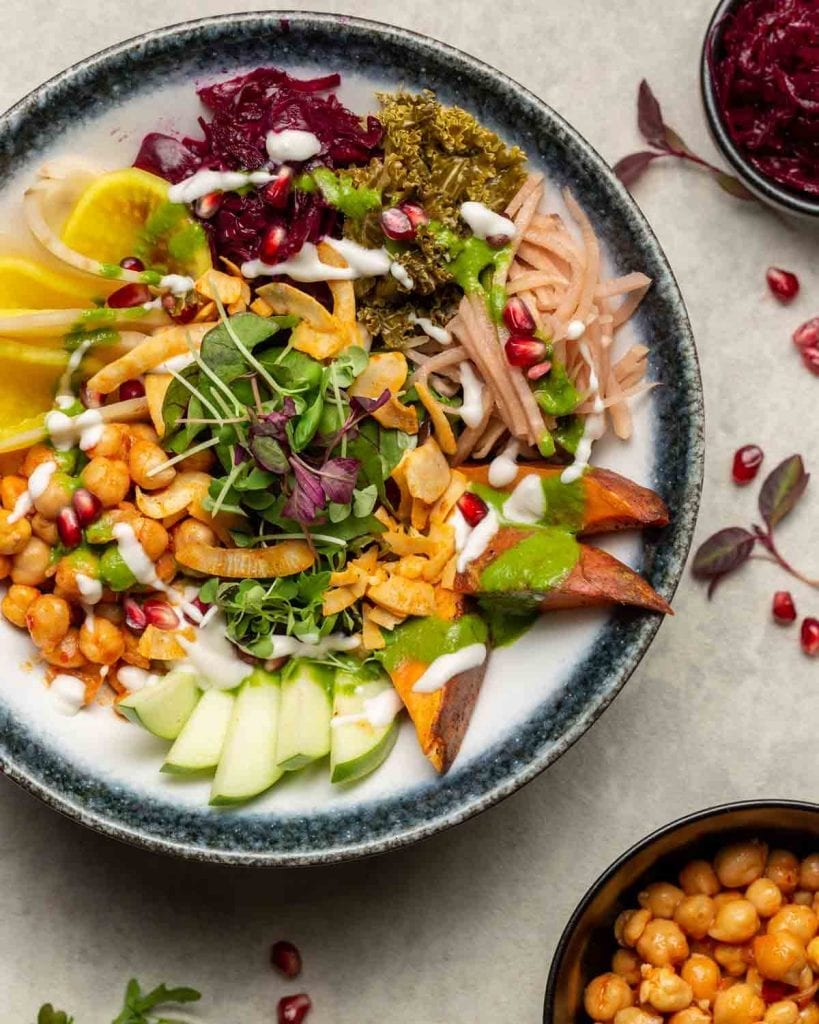Which is more sustainable vegan or plant-based? Louise Palmer-Masterton founder of multiple award-winning restaurants Stem & Glory discusses… People defining themselves as ‘vegan’ sometimes seem to take exception to the term plant-based. It’s true that the plant-based term was coined to make plant-based appealing for health reasons without getting into the ethical debate, but does that mean that vegans are more ethical than those defining as plant-based? And which is more sustainable?

Plant-based or vegan?
The background and evolution of the terms
The term vegan was first coined in 1944 by Donald Watson and friends, although it wasn’t until the 80s that veganism was clearly defined as: “a philosophy and way of living which seeks to exclude—as far as is possible and practicable—all forms of exploitation of, and cruelty to, animals for food, clothing or any other purpose…”.
Interestingly, Dr. T. Colin Campbell coined the term ‘plant-based’ around the same time following research at the National Institutes of Health which showed the therapeutic impact of a low-fat, high-fibre, vegetable-based diet on cancer. He was seeking a term that described this diet without invoking ethical considerations.
In other words, veganism is about the abstention from animal products, not necessarily with reference to healthy foods, whereas plant-based is very much focussed around the health benefits of following the diet.
When I was in my early twenties in the early 80s, veganism was very fringe, and plant-based was unheard of. But through the 80s and 90s as people’s consciousness started to shift and once we turned the corner into the noughties, the term plant-based began to break into the mainstream and, as we moved into the ‘teenies’, the movement, and the term, suddenly started to gain traction.

Environmental Impact
Back when I became vegan, it was for the animals. But back then, in the same way that health was not a key driver for those adopting a vegan lifestyle, the environment also wasn’t mentioned. Climate change wasn’t a thing, and it was for pure ethical reasons that people became vegan. But now, the environmental arguments have become increasingly compelling to the point that they can no longer be ignored. Most people I know now actively try to eat fewer animal products. But are these people eating more vegan food or more wholefood plant-based food? And is one better for the environment?
I had an academic friend that questioned my veganism many years ago. He held up a processed vegan product and said to me ‘this doesn’t contain animals, but it does contain humans’. He made a good point, and one that has stayed with me. The life blood of humans goes into processing and manufacturing, and processing is wasted energy. The more you process a food product, the more energy you use. Much in the same way that if you feed a cow food fit for human consumption and then eat the cow, that’s a very wasteful and extravagant way to eat. Now eating processed vegan food isn’t as bad for the environment as eating a cow, but it is on the same spectrum. As is eating vegetables air flown from Peru (that’s a whole other topic!)
So, on this point, and this point alone, a wholefood plant-based diet is definitely better for the environment and health than a vegan diet containing processed foods.

Non-Food Products
I’ll finish by moving away from diet to other products. This is something I’ve also seen evolve rapidly in the past decade. When I was a young vegan it was quite hard to find vegan fashion, for example non-leather shoes. When you could find them, products were made from plastic derived materials, and these were definitely not good for the environment. Fast forward to today, there is an explosion of not only vegan fashion and products but specifically sustainable plant-based products. It’s clear that just being vegan does not make a product environmentally sound. There has to be a deeper dive into production beyond simply avoiding animal derived ingredients.
Sustainable fashion is rapidly growing, with all kinds of materials, such as banana stems and pineapple leaves being used to create a wide variety of fashion and home products from sustainable fabric to biodegradable faux leather. But is sustainable fashion vegan? Well no, often it is not. Many sustainable fashion houses still use products such as wool and silk. Many use ‘eco-wool’ and ‘eco-silk’ which are animal products supposedly done more ‘ethically’, but the truth is, unless they explicitly state they are vegan wool or vegan silk, they will still be made of animal products, and neither vegan nor truly sustainable.
In conclusion, I would ask plant-based and vegan people to make their peace with each other. You have both made a huge contribution to the growth in the movement towards living in a more compassionate and sustainable world.
Words by Louise Palmer-Masterton. Louise is founder of multiple award-winning restaurants Stem & Glory; hip and trendy but accessible wholefood plant-based restaurants, serving delicious gourmet vegan food from locally sourced ingredients. Stem & Glory also offers a range of ready meals and recipe kits available for delivery across the UK. www.stemandglory.uk




